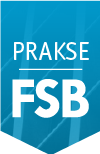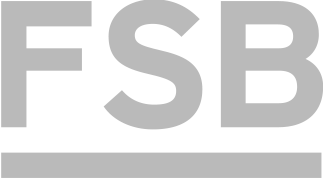International Exchange
Course details
Student Mobility > Programmes and Courses > Courses in English > Course detailsSimulation of Production and Logistics Systems
- Teaching:
- ECTS:
- Level:
- Semester:
- Prerequisites:
- Load:
Lectures Exercises Laboratory exercises Project laboratory Physical education excercises Field exercises Seminar Design exercises Practicum 30 0 0 0 0 15 0 0 - Course objectives:
- Getting to know the theoretical basis of simulation of discrete events. The theory and practice of using commercial software tools for building simulation models of manufacturing and logistics systems.
- Student responsibilities:
- Grading and evaluation of student work over the course of instruction and at a final exam:
- Created seminar (simulation model and results) 30%, presentation and defence of seminar 20%, writen mid-term exam 50%.
- Methods of monitoring quality that ensure acquisition of exit competences:
- Active participation in class. Control of understanding the subject matter through consultations during work on seminar. Written exam (mid-term exam of theoretical part).
- Upon successful completion of the course, students will be able to (learning outcomes):
- Explain the basics of the Discrete Event Simulation (DES) and determine when this is a useful engineering tool. Plan and execute the simulation project according to the structured recognized methodology of the project for the simulation of production or logistics systems. Create a simulation model of a complex manufacturing or logistics system using a professional (commercial) DES toolkit. Plan, design and run experiments to improve the manufacturing or logistics system based on the DES model.
- Lectures
- 1. Introduction to system simulations.
- 2. Discrete Events Simulation (DES) - Definition, Terminology, Application Examples.
- 3. DES model design methodology (planning, model building, model verification and validation, experiment and results analysis).
- 4. Simulation languages and professional simulation tools.
- 5. Enterprise Dynamics10 (ED10) software suite. Objects (concept of atoms). Connecting Objects, Attributes, Event Management.
- 6. Application of ED10 - examples of simulation of queues, simulation and modeling on the computer.
- 7. Application of ED10 - examples of simulation of production process and assembly, modeling on the computer.
- 8. Application of ED10 - examples of simulation of production process and assembly, modeling on the computer (continued).
- 9. Application of ED10 - examples of packaging / depackaging process, modeling on the computer.
- 10. Application of ED10 -examples of material handling (conveyors, robots, cranes), modeling on the computer.
- 11. Application of the ED10 - examples of simulation of internal transport with vehicles, modeling on the computer.
- 12. Application of the ED10 - examples of simulation of internal transport with vehicles, modeling on the computer (continued).
- 13. Application of ED10 - examples of storage system simulation, modeling on the computer.
- 14. Application of ED10 - examples of storage system simulation and modeling on the computer (continued).
- 15. Application of ED10 - 3D visualization and animation using simulation software.
- Exercises
- 1. Defining seminars.
- 2. Individual work on seminars with consultations (model, experiment, results).
- 3. Individual work on seminars with consultations (model, experiment, results).
- 4. Individual work on seminars with consultations (model, experiment, results).
- 5. Individual work on seminars with consultations (model, experiment, results).
- 6. Individual work on seminars with consultations (model, experiment, results).
- 7. Individual work on seminars with consultations (model, experiment, results).
- 8. Individual work on seminars with consultations (model, experiment, results).
- 9. Individual work on seminars with consultations (model, experiment, results).
- 10. Individual work on seminars with consultations (model, experiment, results).
- 11. Individual work on seminars with consultations (model, experiment, results).
- 12. Individual work on seminars with consultations (model, experiment, results).
- 13. Individual work on seminars with consultations (model, experiment, results).
- 14. Presentation of seminars.
- 15. Presentations of seminars.
- Compulsory literature:
- Enterprise Dynamics 10 - user manuals, Incontrol, 2017.
Banks J et al., Discrete-Event System Simulation, 4th ed., 2005.
Robinson S., Discrete-event simulation: from the pioneers to the present, what next?, Journal of Operational Research Society, 56 (6), 2005.
Heragu, S., Facilities Design, PWS Publishing, Boston, 1997. - Recommended literature:
- Robinson S., Simulation: The Practice of Model Development and Use, Wiley, 2014.
Randell L., On Discrete-Event Simulation and Integration in the Manufacturing System Development Process, Lund University, 2002.






